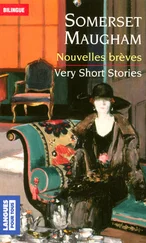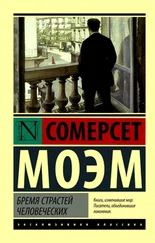| "What a funny old fellow!" thought Philip. |
"Ну и чудак!"- подумал Филип. |
| He soon discovered why Doctor South's assistants found it difficult to get on with him. |
Он скоро понял, почему помощникам доктора Саута было так трудно с ним ладить. |
| In the first place, he set his face firmly against all the discoveries of the last thirty years: he had no patience with the drugs which became modish, were thought to work marvellous cures, and in a few years were discarded; he had stock mixtures which he had brought from St. Luke's where he had been a student, and had used all his life; he found them just as efficacious as anything that had come into fashion since. |
Прежде всего он наотрез отказывался признавать все открытия медицины за последние тридцать лет; терпеть не мог модных лекарств, которые будто бы сначала творят чудеса, а через несколько лет выходят из употребления; у него был набор ходовых снадобий - он привык к ним еще в больнице св. Луки, когда был студентом, и применял всю жизнь, находя их не менее целебными, чем новомодные средства. |
| Philip was startled at Doctor South's suspicion of asepsis; he had accepted it in deference to universal opinion; but he used the precautions which Philip had known insisted upon so scrupulously at the hospital with the disdainful tolerance of a man playing at soldiers with children. |
Филипа поразило недоверчивое отношение доктора Саута к асептике; ему приходилось пользоваться ею, уступая господствующему мнению, но он принимал меры предосторожности, на которых так строго настаивали в больнице, с небрежной снисходительностью взрослого, играющего с детьми в солдатики. |
| "I've seen antiseptics come along and sweep everything before them, and then I've seen asepsis take their place. |
- Видали! - говорил он.- Видали, как появилась антисептика и все смела на своем пути, а потом на ее место пришла асептика. |
| Bunkum!" |
Чепуховина! |
| The young men who were sent down to him knew only hospital practice; and they came with the unconcealed scorn for the General Practitioner which they had absorbed in the air at the hospital; but they had seen only the complicated cases which appeared in the wards; they knew how to treat an obscure disease of the suprarenal bodies, but were helpless when consulted for a cold in the head. |
Приезжавшие к нему молодые люди прошли больничную практику и научились там презирать врача, которому приходится лечить все болезни; однако в клинике им встречались только сложные случаи: они знали, как помочь при загадочном расстройстве надпочечников, но терялись, когда их просили вылечить насморк. |
| Their knowledge was theoretical and their self-assurance unbounded. |
Знания их были чисто теоретические, а самомнение не имело границ. |
| Doctor South watched them with tightened lips; he took a savage pleasure in showing them how great was their ignorance and how unjustified their conceit. |
Доктор Саут наблюдал за ними, сжав зубы; он с мстительным удовольствием показывал им, как велико их невежество и беспочвенно зазнайство. |
| It was a poor practice, of fishing folk, and the doctor made up his own prescriptions. |
Пациенты были небогатые - в основном рыбаки,-и врач сам готовил лекарства. |
| Doctor South asked his assistant how he expected to make both ends meet if he gave a fisherman with a stomach-ache a mixture consisting of half a dozen expensive drugs. |
Доктор спрашивал своих помощников, как они собираются сводить концы с концами, если будут выписывать рыбакам, у которых болит живот, микстуру, составленную из полудюжины дорогих медикаментов. |
| He complained too that the young medical men were uneducated: their reading consisted of The Sporting Times and The British Medical Journal; they could neither write a legible hand nor spell correctly. |
Он жаловался на то, что молодые врачи -совершенные дикари: они читают только "Спортинг таймс" и "Бритиш медикал джорнэл", пишут неразборчиво и с ошибками. |
| For two or three days Doctor South watched Philip closely, ready to fall on him with acid sarcasm if he gave him the opportunity; and Philip, aware of this, went about his work with a quiet sense of amusement. |
Несколько дней доктор наблюдал за Филипом очень пристально, готовый накинуться на него при малейшей оплошности, а Филип, понимая это, делал свое дело, тихонько посмеиваясь. |
| He was pleased with the change of occupation. |
Ему нравилась новая работа. |
| He liked the feeling of independence and of responsibility. |
Он радовался своей независимости и чувству ответственности. |
| All sorts of people came to the consulting-room. |
В приемную врача приходили самые разные люди. |
| He was gratified because he seemed able to inspire his patients with confidence; and it was entertaining to watch the process of cure which at a hospital necessarily could be watched only at distant intervals. |
Филипу отрадно было чувствовать, что он внушает пациентам доверие; он с живым интересом наблюдал за процессом их выздоровления - ведь в больнице св. Луки он мог следить за этим только урывками. |
| His rounds took him into low-roofed cottages in which were fishing tackle and sails and here and there mementoes of deep-sea travelling, a lacquer box from Japan, spears and oars from Melanesia, or daggers from the bazaars of Stamboul; there was an air of romance in the stuffy little rooms, and the salt of the sea gave them a bitter freshness. |
Обход больных приводил его в низенькие хибарки - там повсюду лежали рыболовные снасти, паруса и памятки о плаваниях в далеких морях: лакированный ларчик из Японии, пики и весла из Меланезии, кинжал, купленный на базаре в Стамбуле; тесные комнатушки дышали романтикой, а соленый запах моря придавал им пряную свежесть. |
| Philip liked to talk to the sailor-men, and when they found that he was not supercilious they told him long yarns of the distant journeys of their youth. |
Филип любил поговорить с матросами, а они, видя, что в нем нет и тени высокомерия, стали делиться с ним воспоминаниями о дальних странствиях своей юности. |
| Once or twice he made a mistake in diagnosis: (he had never seen a case of measles before, and when he was confronted with the rash took it for an obscure disease of the skin;) and once or twice his ideas of treatment differed from Doctor South's. |
Раза два он ошибся в диагнозе (ему еще не приходилось видеть корь, и, когда появилась сыпь, он подумал, что это какая-то непонятная накожная болезнь) и раза два разошелся с доктором Саутом в вопросе о том, как лечить больного. |
| The first time this happened Doctor South attacked him with savage irony; but Philip took it with good humour; he had some gift for repartee, and he made one or two answers which caused Doctor South to stop and look at him curiously. |
Первый раз доктор обрушил на него поток убийственной иронии, но Филип отнесся к этой вспышке с юмором: он и сам был остер на язык и так отбрил старика, что тот осекся и поглядел на него с изумлением. |
| Philip's face was grave, but his eyes were twinkling. |
На лице у Филипа не было и тени улыбки, но глаза его смеялись. |
| The old gentleman could not avoid the impression that Philip was chaffing him. |
Старику было ясно, что Филип его поддразнивает. |
| He was used to being disliked and feared by his assistants, and this was a new experience. |
Он привык, что помощники его не любят и боятся, но тут было что-то новое. |
| He had half a mind to fly into a passion and pack Philip off by the next train, he had done that before with his assistants; but he had an uneasy feeling that Philip then would simply laugh at him outright; and suddenly he felt amused. |
Он чуть было не пришел в ярость и не спровадил Филипа с глаз долой, как это делал не раз со своими ассистентами, но его смущало, что тогда Филип посмеется над ним в открытую. И вдруг ему самому стало смешно. |

![Уильям Макгиверн - Завтра опять неизвестность [английский и русский параллельные тексты]](/books/35168/uilyam-makgivern-zavtra-opyat-neizvestnost-angli-thumb.webp)


